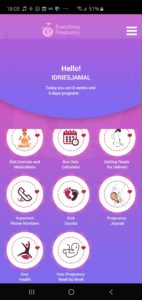If you’re pregnant, you’ve probably heard a lot about the Glucose Loading Test (GLT). It’s one of those rites of pregnancy but most mothers-to-be just don’t look forward to it. So, why do doctors and midwives recommend this test and what can you expect?
1). What Is the Glucose Loading Test (GLT)?
The GLT is pretty much exactly what it sounds like, we load your body with tons of sugar. Now, there was a time in all of our lives (I’m thinking sometime between 5 and 20 years old) when the thought of cramming as much sugar into our mouths in as short a period of time as possible would have been the stuff of dreams. Well, unfortunately for many mothers-to-be, the GLT can be a bit of a nightmare. The GLT is performed usually between 24 and 28 weeks of pregnancy (about 5-5 ½ months) and it screens for Gestational Diabetes (diabetes of pregnancy).
2). How does the GLT work?
The loading part of the glucose loading test involves drinking a super sugary drink called glucola. Glucola comes in multiple flavors with orange, lemon and fruit punch being the most common. All of the glucola drinks contain 50 grams of glucose. When you have diabetes, your body doesn’t metabolize (break down) sugar the way that it normally would, this results in higher than normal blood sugar levels. One hour after you drink glucola, your blood will be drawn, if your blood glucose level is more than 140, it is considered abnormal. Because the GLT is a screening test, an abnormal GLT means that you have a higher chance of having diabetes but it is not diagnostic.
3). So, what happens if the GLT is abnormal?
If your GLT is abnormal, you have to do another test called the 3-hour Glucose Tolerance Test (GTT). This is the definitive way to diagnose gestational diabetes. This test involves drinking twice as much of the glucola drink (100 grams) and having your blood drawn four times. Unlike the initial GLT, the 3-hour GTT requires you to fast for at least 8 hours and have your blood drawn before you drink the glucola, as well as 1-hour, 2-hours, and 3-hours after you finish the drink. An abnormal 3-hour GTT means that you have gestational diabetes.
4). Why is glucose testing during pregnancy important?
Diabetes is becoming more and more common in the western world and patients who have diabetes are considered higher risk during pregnancy. Diabetic mothers have a higher risk of:
- Preterm labor and delivery.
- Developing high blood pressure during pregnancy.
- Having abnormally large babies.
- Sustaining pelvic floor damage during delivery
- Delivering by C/Section.
- Developing diabetes later in life.
If you’re curious about alternatives to the glucola drink, check out this blog RIGHT HERE.
Everything you’ve read are just our recommendations and they do not constitute medical advice. Be sure to speak with your doctor or midwife before making any medical decisions.
If you want more where this came from, our book is available in both print and digital formats from Amazon RIGHT HERE
You can also get the free Everything Pregnancy app in the GOOGLE PLAYSTORE and APPLE I-TUNES.
Don’t forget to follow us on social media:
- Facebook: TwinDoctorsTV
- Twitter: @TwinDoctorsTV
- Instagram: TwinDoctorsTV








 May 19, 2018
May 19, 2018 


 October 26, 2020
October 26, 2020 
